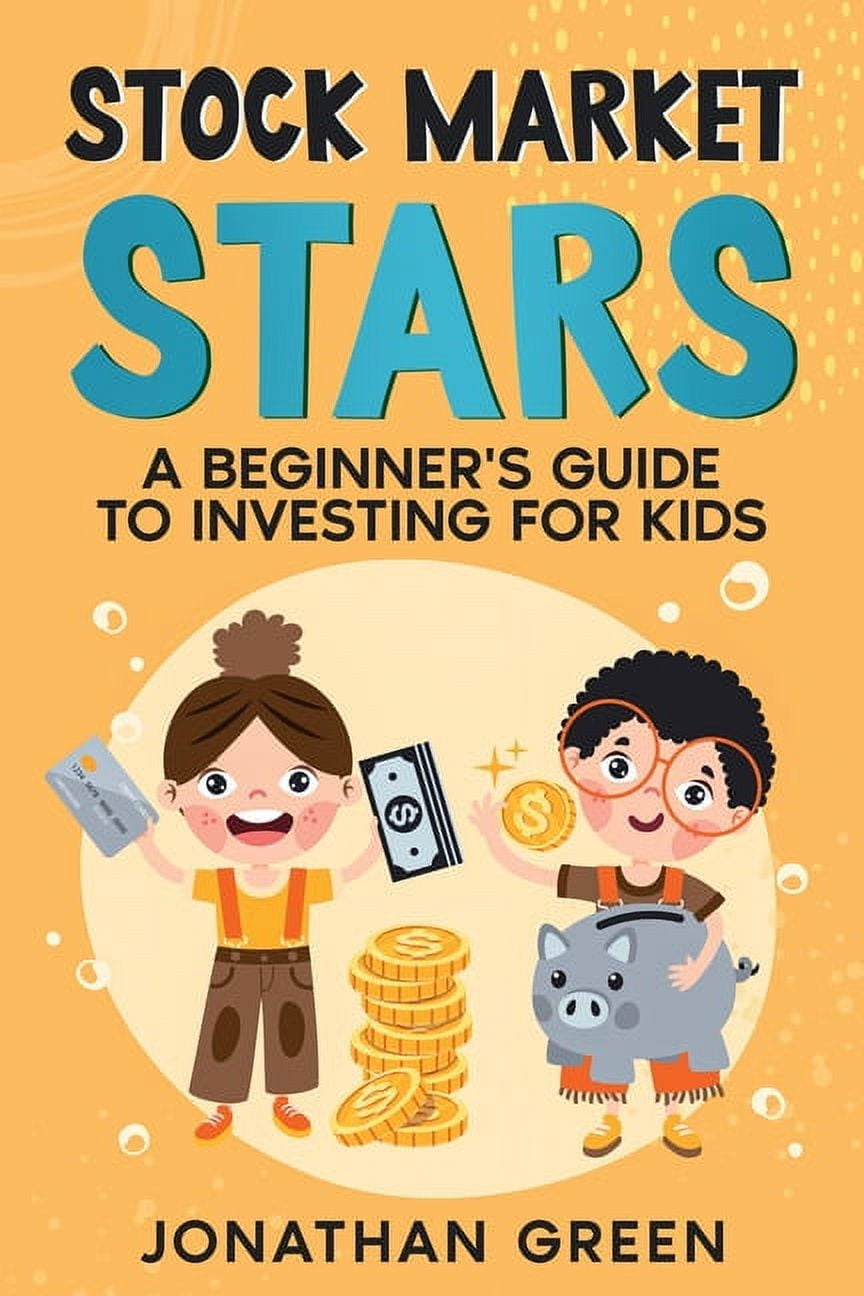
Demystifying the Stock Market: A Kid-Friendly Guide
The stock market. You’ve probably heard adults talking about it on the news, or maybe you’ve seen it mentioned in a movie. It can sound complicated, but at its heart, the stock market is really just a place where people buy and sell pieces of ownership in companies. Let’s break it down in a way that makes sense for kids.
What is a Company?
Imagine you and your friends want to start a lemonade stand. To get started, you need money to buy lemons, sugar, cups, and maybe a cool sign. A company is just like a super-sized lemonade stand. It could be a company that makes toys, sells clothes, builds video games, or even delivers packages.
To start and grow, companies often need a lot of money. One way they can get this money is by selling "shares" of their company to the public.
What are Stocks (or Shares)?
Think of a company like a pizza. When the company sells shares of its stock, it’s like slicing the pizza into many, many slices. Each slice is a share. When you buy a share of stock, you’re buying a tiny piece of ownership in that company.
If the company does well and makes a lot of money, your slice of the pizza (your share of stock) becomes more valuable. If the company struggles and doesn’t make much money, your slice might become less valuable.
What is the Stock Market?
The stock market is like a giant online marketplace where people can buy and sell these slices of pizza (shares of stock). It’s not a physical place like a grocery store, but rather a network of computers and trading platforms where buyers and sellers connect.
The most famous stock markets are the New York Stock Exchange (NYSE) and the Nasdaq. These are where the stocks of many large companies are bought and sold every day.
Why Do Companies Sell Stock?
Companies sell stock for a few main reasons:
- To Raise Money: The money companies raise from selling stock can be used to grow their business. They might use it to build new factories, develop new products, hire more employees, or expand into new markets.
- To Pay off Debts: Sometimes a company might have borrowed money and needs to pay it back. Selling stock can provide the funds to do so.
- To Make Acquisitions: If a company wants to buy another company, it might use the money from selling stock to make the purchase.
Why Do People Buy Stock?
People buy stock for a few main reasons:
- To Share in the Company’s Success: If a company does well, its stock price will likely go up. This means that if you own shares of that stock, your shares become more valuable, and you can sell them for a profit.
- To Earn Dividends: Some companies pay out a portion of their profits to their shareholders in the form of dividends. Dividends are like getting a little bonus for owning the stock.
- To Save for the Future: Investing in the stock market can be a way to save for the future, like for college or retirement. Over the long term, the stock market has historically provided good returns.
How Does the Stock Market Work?
The price of a stock is determined by supply and demand.
- Supply: This is how many shares of a stock are available to be bought.
- Demand: This is how many people want to buy the stock.
If there are more people who want to buy a stock than there are shares available, the price will go up. If there are more shares available than people who want to buy them, the price will go down.
Think of it like your favorite video game. If everyone wants to buy it, the price will go up because it’s in high demand. If no one wants to buy it, the price will go down because there’s a lot of supply but not much demand.
Factors That Affect Stock Prices
Many things can affect the price of a stock, including:
- Company News: If a company announces good news, like a new product launch or a big increase in profits, its stock price will likely go up. If a company announces bad news, like a product recall or a loss of money, its stock price will likely go down.
- Economic Conditions: The overall health of the economy can also affect stock prices. If the economy is doing well, stock prices will generally go up. If the economy is struggling, stock prices will generally go down.
- Industry Trends: Trends in the industry that a company operates in can also affect its stock price. For example, if there’s a lot of excitement about electric cars, the stock prices of electric car companies might go up.
- World Events: Major world events, like wars or natural disasters, can also affect stock prices.
- Investor Sentiment: Sometimes, stock prices can be affected by how investors "feel" about a company or the market in general. If investors are optimistic, they might be more likely to buy stocks, which can drive prices up. If investors are pessimistic, they might be more likely to sell stocks, which can drive prices down.
Important Stock Market Terms for Kids
- Investing: Putting money into something (like stocks) with the hope that it will grow in value over time.
- Portfolio: All the different stocks and other investments that someone owns.
- Diversification: Spreading your investments across different stocks and industries to reduce risk. Don’t put all your eggs in one basket!
- Bull Market: A period when stock prices are generally rising.
- Bear Market: A period when stock prices are generally falling.
- Volatility: How much the price of a stock or the market goes up and down.
- Broker: A person or company that helps you buy and sell stocks.
Risks and Rewards
Investing in the stock market can be a way to grow your money, but it’s important to remember that there are also risks. The price of a stock can go down as well as up, and you could lose money on your investment.
That’s why it’s important to do your research before you invest in any stock. Learn about the company, its industry, and the overall economy. It’s also a good idea to start small and diversify your investments.
Is the Stock Market Like Gambling?
Some people think the stock market is like gambling, but there’s a big difference. Gambling is based on chance, while investing in the stock market is based on research and analysis.
When you gamble, you’re just hoping to get lucky. When you invest in the stock market, you’re making an informed decision based on your understanding of the company and its prospects.
How Can Kids Get Involved?
While kids usually can’t directly buy and sell stocks, there are still ways to learn about the stock market:
- Talk to Your Parents or Guardians: Ask them about their investments and how they make decisions.
- Play Stock Market Games: There are many online games that simulate the stock market and allow you to practice investing without risking real money.
- Read Books and Articles: There are many books and articles written for kids about the stock market.
- Follow the News: Pay attention to what’s happening in the world and how it might affect companies and the stock market.
- Start a Savings Account: Even if you can’t invest in stocks yet, starting a savings account is a great way to learn about saving and managing money.
The Bottom Line
The stock market can seem complicated, but it’s really just a place where people buy and sell pieces of ownership in companies. By understanding the basics of the stock market, you can start to learn about investing and how to grow your money over time.
Remember to do your research, start small, and diversify your investments. And most importantly, have fun learning!



